
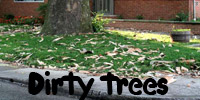
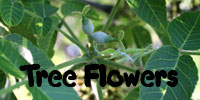
|
Dirty trees
crab, silver maple, catalpa, Callery pear,
magnolia, dogwood, sycamore, oak
Flowering crab (Malus species and
hybrids,
family Rosaceae) is a popular horticultural tree. It abundantly
produces showy flowers, and little apples (pomes) that are eaten by
robins. Not all of them though.
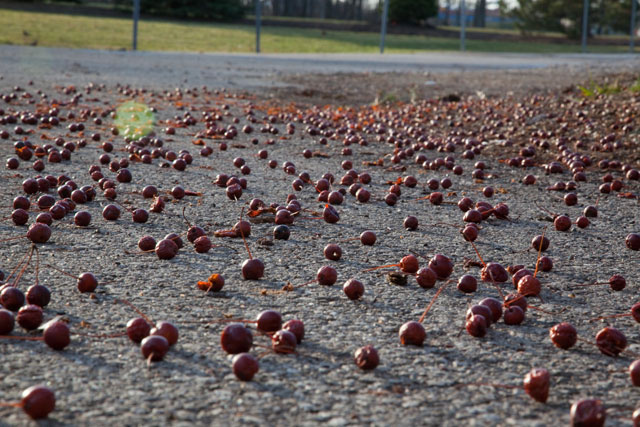
Crabapples litter a parking lot in Marion Ohio. March 19, 2009
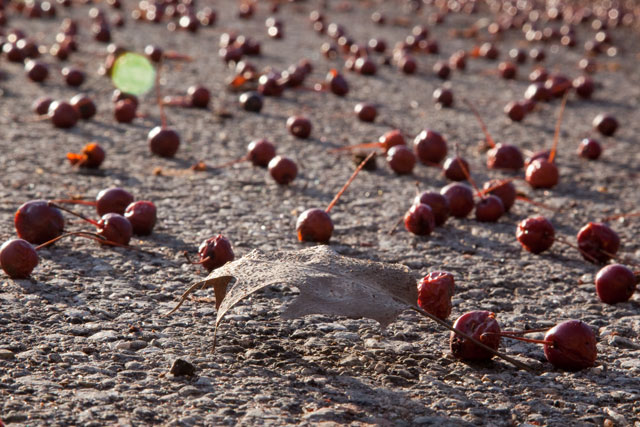
Crabapples in parking lot, Marion, Ohio. March 19, 2009.
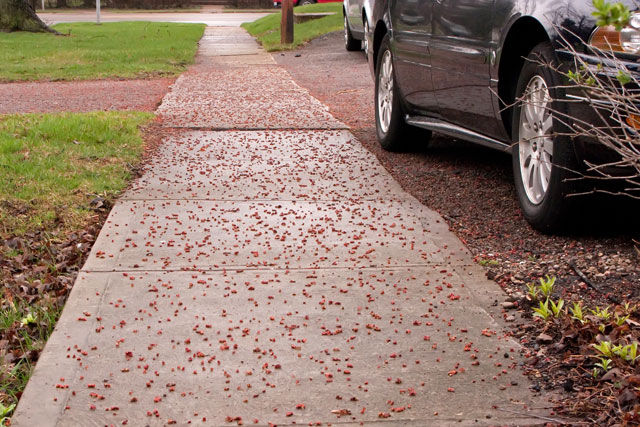
Silver maple flowers litter sidewalk in Columbus, Ohio. April 4, 2009.
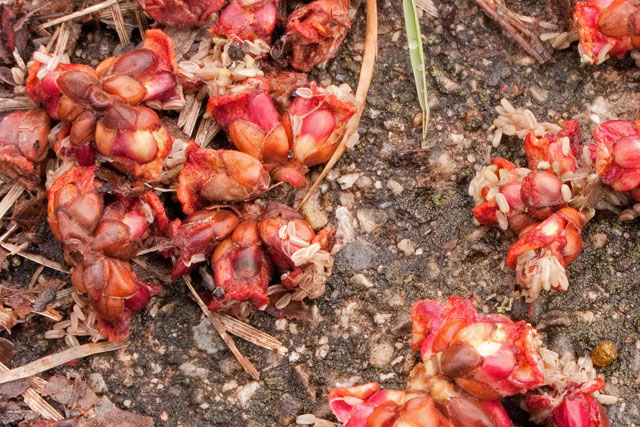
Silver maple staminate flowers. Columbus, Ohio, April 4, 2009.
Showy catalpa (Catalpa speciosa,
family Bignoniaceae), a native of the southeastern U.S. shows up
here as a popular street, lawn and park tree that produces
abundant pretty white flowers in branched clusters in late
spring. Its fruits are long capsules which have earned
catalpa an alternative common name --cigar tree. Well, it seems like
the trees must have seen some "no smoking" signs, because they're
dropping their cigars all over the ground!
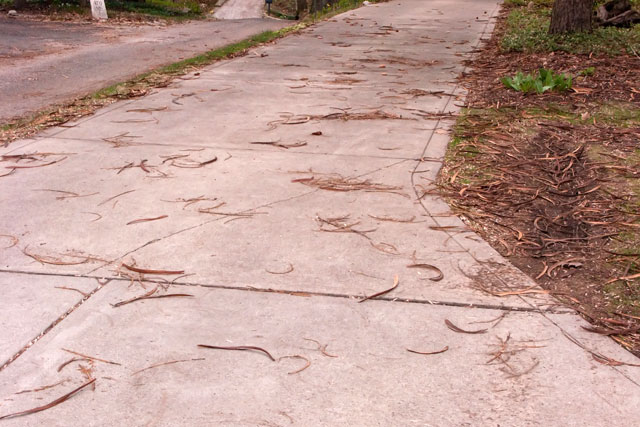
Shed catalpa fruits enhance a driveway in Columbus, Ohio. April 5, 2009
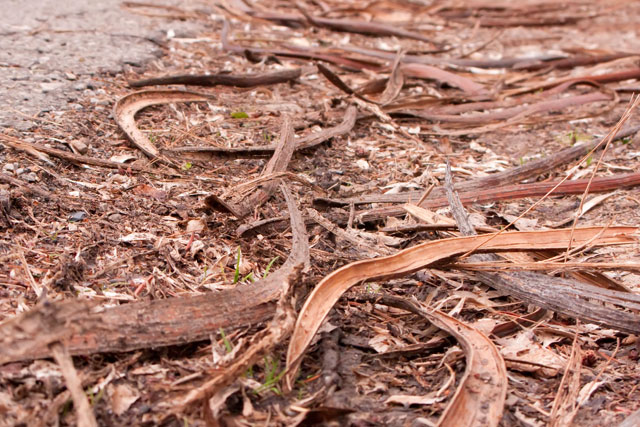
Catalpa capsules. April 5, 2009. Columbus, Ohio.
Catalpa seeds are winged for wind
dispersal. They superficially (and functionally) resemble maple samaras.
The samaras however are single-seeded fruits, not seeds from within a fruit as are
these catalpa seeds.
Catalpa seed. Aprl 5, 2009. Columbus, Ohio.
Callery pear (Pyrus calleryi, family Rosaceae) is a too-widely planted street tree that flowers abundantly in mid-April. The petals carpet the roadside.
Callery pear. Columbus, Ohio. April 18, 2009.
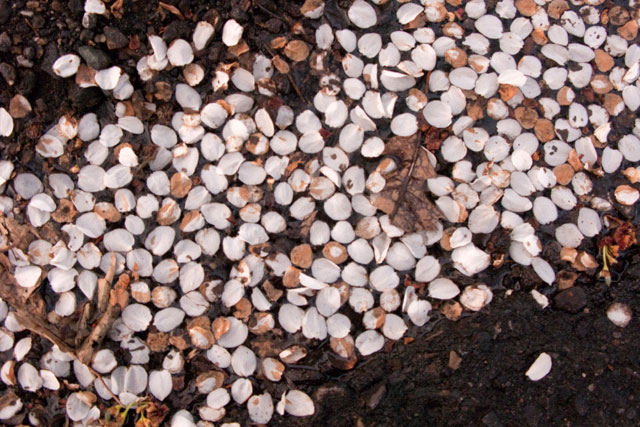
Callery pear petals. April 18, 2009. Columbus, Ohio.
Magnolia (Magnolia species, family
Rosaceae) produce flowers with especially large petals, and many of
them. They decorate the lawns and sidewalks in early spring.
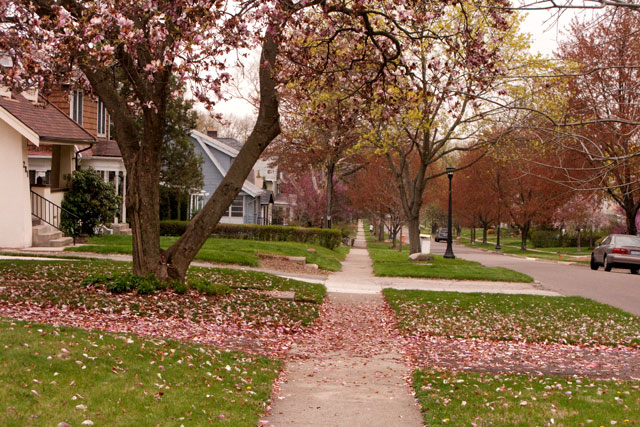
Magnolia sheds petals. April 18, 2009. Columbus, Ohio.
The petals contrast well with the lawn.
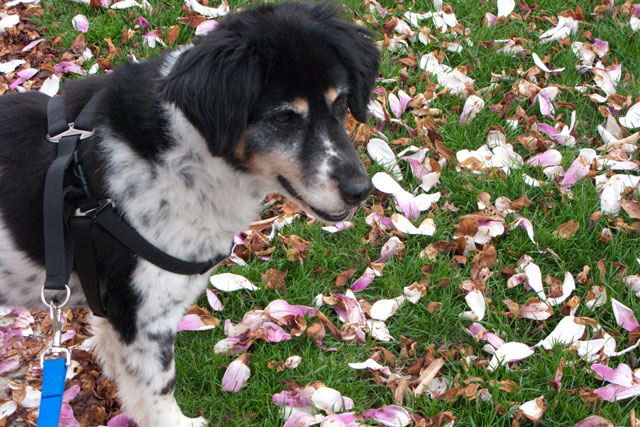
Magnolia (not dogwood) petals. April 18, 2009. Columbus, Ohio.
In late April, American sycamore (Platanus occidentalis,
family Platanaceae) begins to flower. It is a wind-pollinated
monoecious tree that produces globose unisexual heads of many tiny
flowers. Pollen release occurs as the stamens drop off the trees. The small but numerous stamens litter the ground.
American sycamore stamens. April 30, 2009.
The American sycamore staminate heads are shed after the stamens
drop. Red maple trees are also flagrantly disregarding local ordinances
against littering!
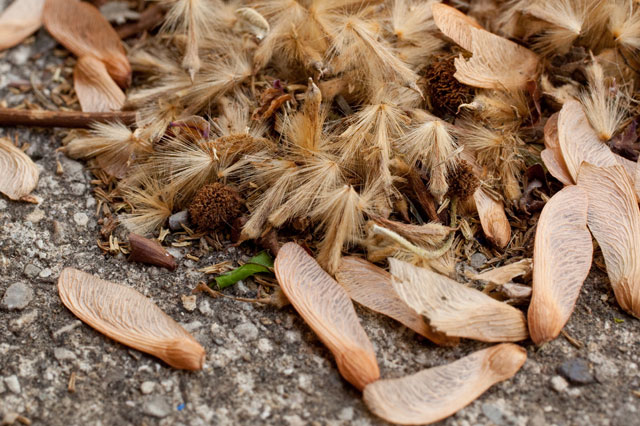 Sycamore staminate capitula and last year's achenes, plus red maple samaras.
Sycamore staminate capitula and last year's achenes, plus red maple samaras.
May 9, 2009. Columbus, Ohio.
Along some streets in the Clintonville
neighborhood of Columbus, various members of the red oak group of
trees, including northen red oak, Shumard oak, and pin oak, are common
roadside trees. Judging by the occurrence nearby of known Shumard oaks, and the
appearance of these young leaves (intermediate lobe depth between pin
oak and northern red), these appear to be Shumard oaks linung the
street.
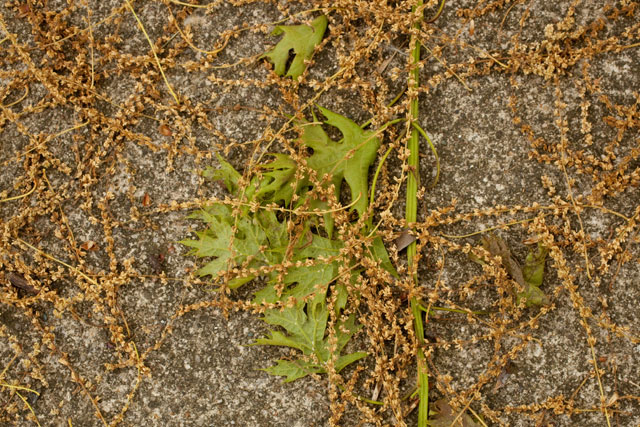
Shumard oak twig and staminate catkins May 9, 2009. Columbus, Ohio.
In early May, oaks flower. Oaks, like many trees, are
monoecous and wind-pollinated, and produce extremely abundant tiny
staminale (male) flowers in drooping catkins. These are dropped after the
pollen has been sent into the breeze (and hopefully into the waiting arms ...I mean stigmas ...of pistillate flowers).
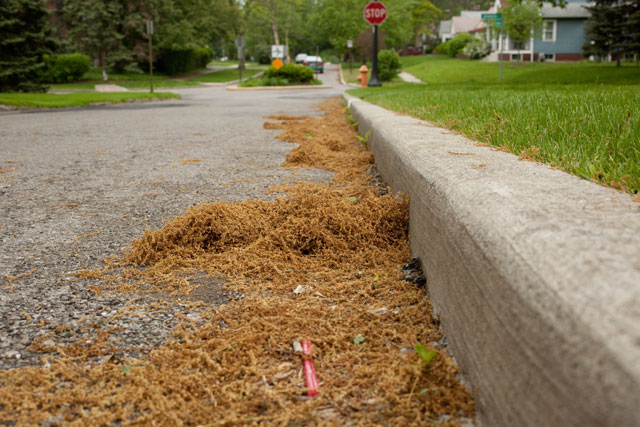
Oak staminate catkins. May 9, 2009. Columbus, Ohio.
Flowering dogwood (Cornus florida)
produces small, inconspicuous flowers. What? Huh? Hello? Isn't
flowering dogwood the understory tree with big showy
4-petaled blossoms ...a tree that people like to have in their lawns
because the flowers are so beautiful?
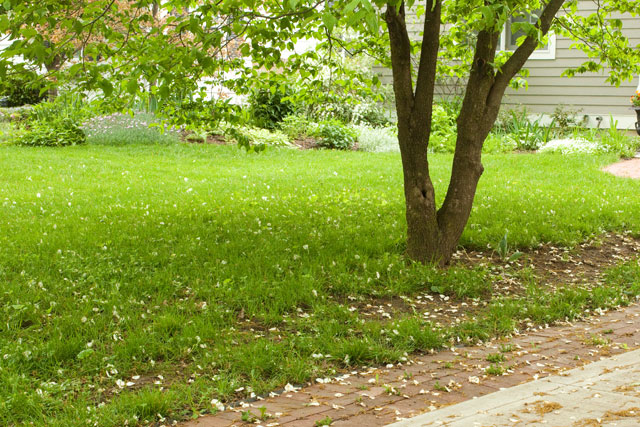
Flowering dogwood in an urban front yard in Columbus, Ohio. May 9, 2009.
Almost. The big
flower-like things are actually clusters of several small flowers. What
look like 4 petals are 4 petal-like appendages called "bracts." The
serve the same function as petals --to attract pollinators. Here's a
closeup of a dogwood flower cluster taken 4 years ago.
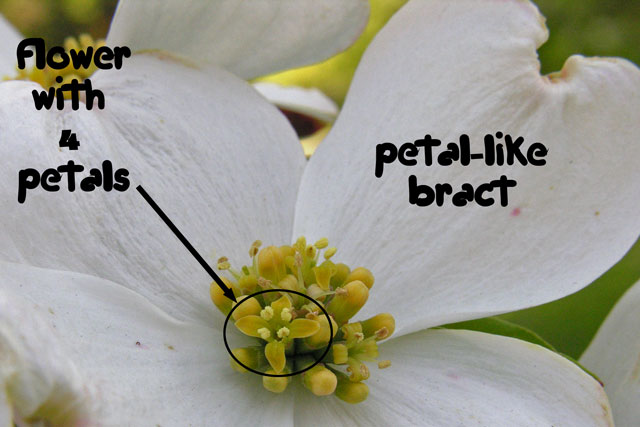
Dogwood flower cluster. May 5, 2005. Columbus, Ohio.
OK. now that we've gotten that straight, let's celebrate the petal-like bracts that these trees are distributing like confetti.
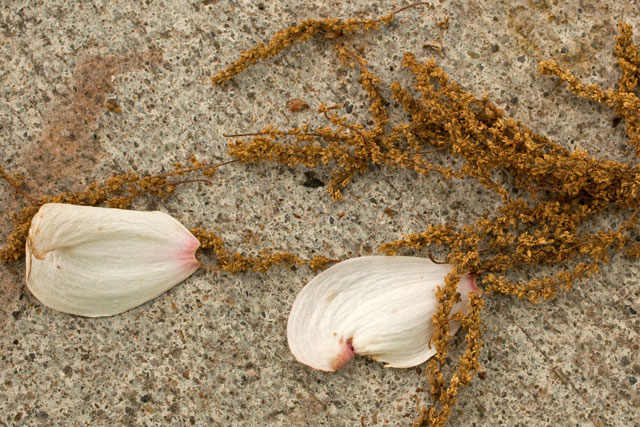
Dogwood bracts and oak catkins. May 9. 2009. Columbus, Ohio.
|

